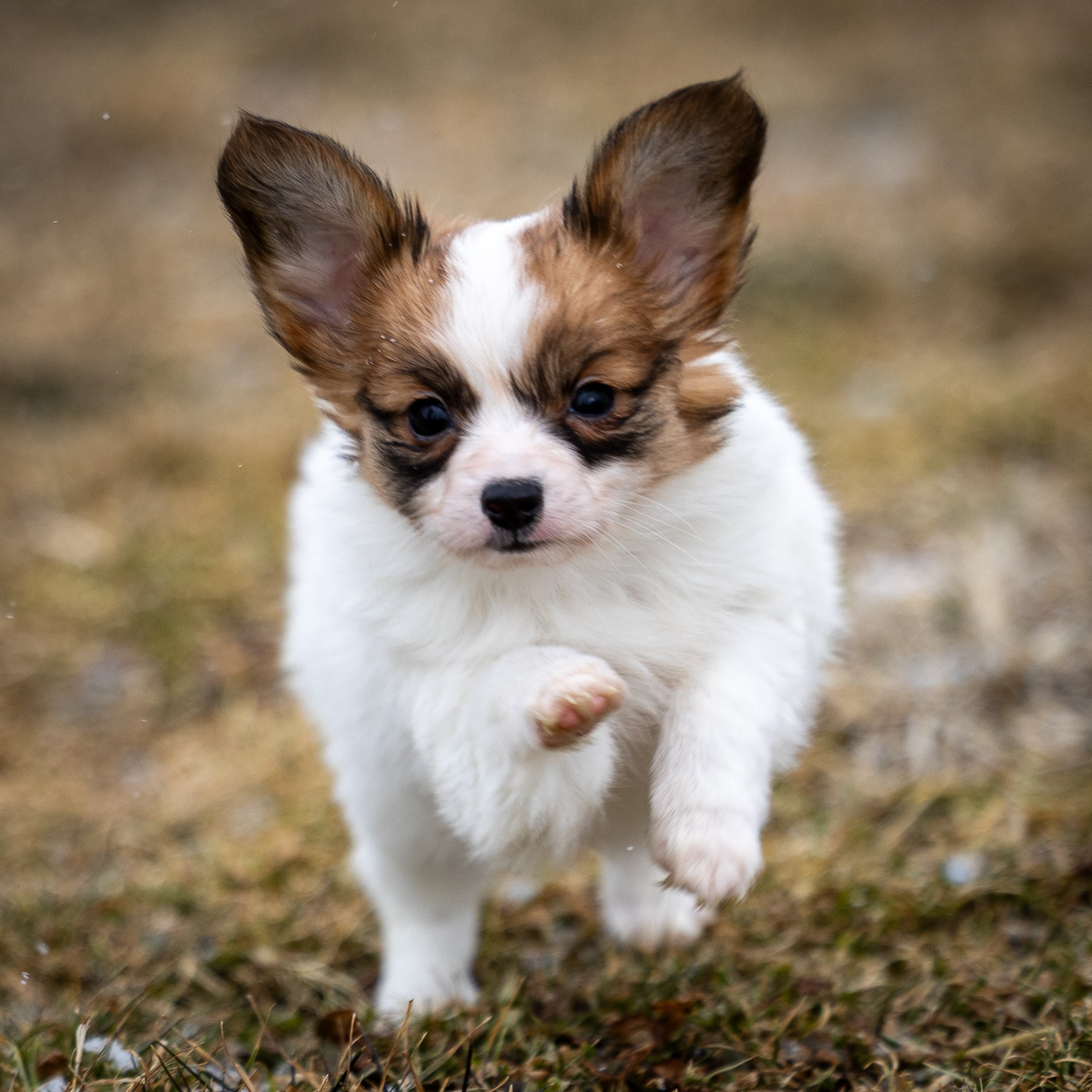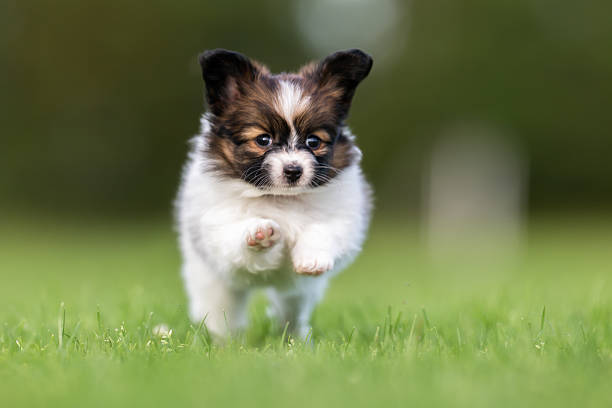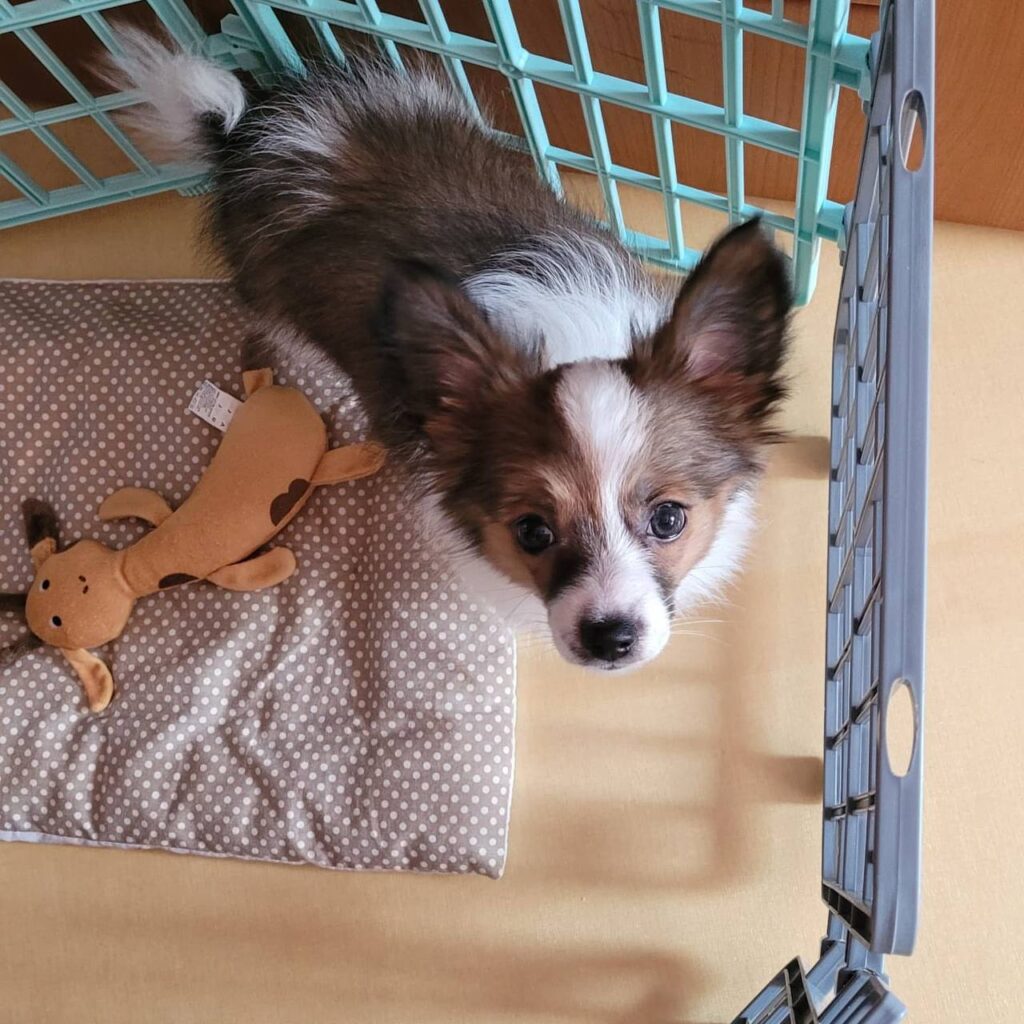



More About This Breed
Fluttering along the garden path, delicate ears fanning like butterfly wings, a Papillon Puppy dances through the flowers. Curious sparrows and bees pause to watch her spirited performance—until a sudden rustle in the bushes catches her attention. That’s when this tiny dynamo proves she’s not just a dainty lapdog but a keen-eyed, agile companion. With a quick leap and a playful pounce, she investigates every rustling leaf with the focus of a seasoned explorer.
The Papillon Puppy is a breed steeped in elegance and intelligence, tracing its roots back to the royal courts of Europe. Originally cherished by nobility as charming companions, these little dogs earned their name—Papillon, meaning “butterfly” in French—for their signature ears that frame their faces like delicate wings. Don’t let their petite size fool you; these pups are lively, quick learners with a bold spirit and endless curiosity.
Whether prancing through a sunlit meadow or curling up in a regal lap, the Papillon Puppy brings grace, energy, and a touch of fairy-tale charm wherever they go.
Personality
Papillons are bright, lively, and endlessly curious. Their personality blends the charm of a toy breed with the boldness of a little explorer. Known for their playful antics, they often have a mischievous sense of humor and an infectious, cheerful attitude.
When they’re not darting around in joyful bursts of energy, they’re happy to snuggle up in a warm lap. Adults are typically affectionate and gentle, making them wonderful companions for families—including those with children.
Papillons are highly adaptable, transitioning seamlessly from city apartments to country homes. They travel well and can adjust to new environments with ease. While they may be initially reserved with strangers, they quickly mirror their owner’s demeanor—if you welcome someone, your Papillon will too.
Ever alert, these little watchdogs notice every sound and movement, ready to announce visitors with a dainty but determined bark. They usually get along well with other pets, though their bold nature can sometimes lead to feisty moments with larger dogs. Proper introductions and socialization help ensure harmony.
As with all dogs, early socialization is key for Papillons—expose them to different people, places, and experiences while they’re young. Train them with patience and positivity (they thrive on praise and treats!), and you’ll have a clever, devoted companion who’s as eager to learn as they are to love.
Living with a Papillon Puppy
The Papillon thrives in any loving home, whether it’s a house with a yard or a cozy apartment. While they enjoy space to explore, they adapt well to city living as long as they get regular playtime and short walks. Some Papillon owners even train their pups to use indoor potty pads—especially handy for high-rise living!
Papillon puppies are born lively and inquisitive, and their energy seems boundless in their first year. As they mature, they settle into a more balanced rhythm—playful bursts followed by long, luxurious naps in their favorite sunbeam.
Like all small breeds, Papillons can be mischievous if left unsupervised as puppies. Crate training helps with housebreaking and keeps them safe when you’re away. Even adults may resort to chewing or digging if they’re bored, so mental and physical stimulation is key.
Exercise Needs
A stimulated Papillon is a happy Papillon. While they don’t need marathon exercise sessions, they do best with 30–60 minutes of activity per day—short walks, indoor play sessions, or agility games (they love showing off their speed and smarts!). Puzzle toys and training exercises also keep their sharp minds engaged.
Unlike larger breeds, Papillons don’t require rough terrain for paw care, but regular nail trims are essential to keep their delicate feet comfortable.
Puppy Precautions
Because Papillons are small and light-boned, puppies need gentle play to avoid joint stress. A good rule is 5 minutes of exercise per month of age—so a 4-month-old puppy should have no more than 20 minutes of active play at a time. Avoid letting them jump from high surfaces (like furniture) to protect their developing bones.
With the right balance of play, training, and affection, your Papillon will be a loyal, lively companion for years to come!






Coat Color And Grooming

Papillon Coat & Grooming
The Papillon boasts a long, silky single coat with no undercoat, giving them an elegant, flowing appearance. Their signature butterfly-like ears frame their expressive face, while their plumed tail arches gracefully over their back. The most common colors are white with patches of black, red, sable, or lemon.
This is a low-maintenance but glamorous coat. Regular (2-3 times weekly) brushing prevents tangles, especially around the ears, chest, and tail. Since they lack an undercoat, they shed lightly year-round with no major seasonal blowouts.
Basic care includes:
✔ Nail trims every few weeks
✔ Ear checks to prevent wax buildup
✔ Occasional baths (only when needed)
Papillon puppies sometimes go through an awkward phase where their ears may not stand perfectly. Gentle massaging and light support (like taping) can help, but many correct naturally with time. Your breeder can guide you if needed.
Start grooming your Papillon when he/she's a puppy, to get them used to it.
Cute fur babies available for you

